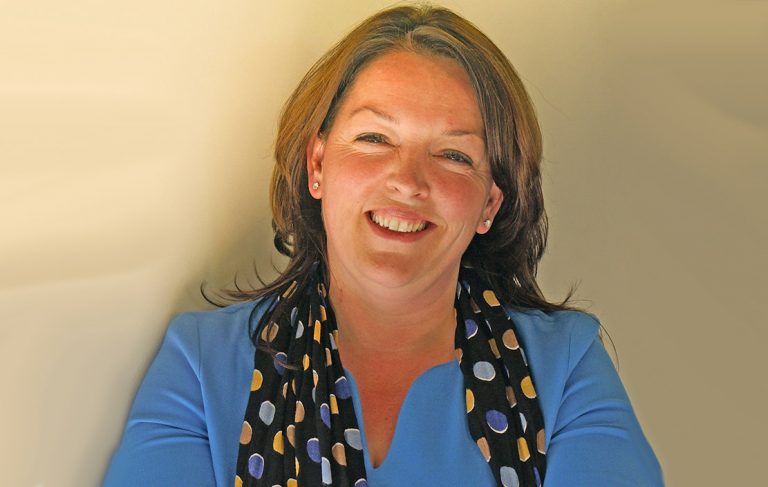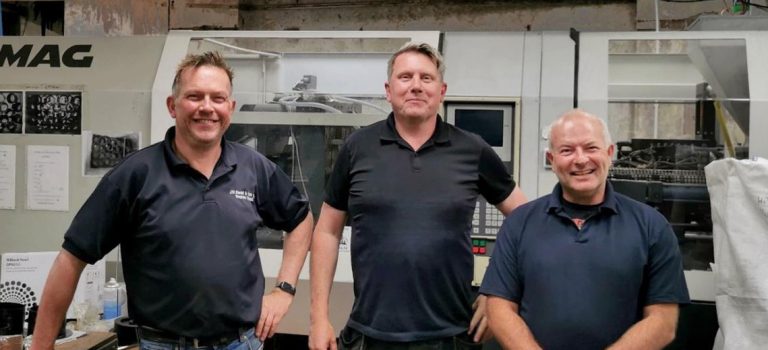Housebuilder sells portfolio of homes for £50m
MJ Gleeson plc is set to sell 288 homes across multiple developments to global investment firm Carlyle and Gatehouse Investment Management, a single-family housing investment manager.
Consideration for the sale totals £50.4m payable in cash upon completion of each home, save for a small retention. The proceeds will be reinvested into the business for working capital purposes.
The transaction strengthens Gleeson Homes’ forward order book and allows the business to expedite the opening of new sites.
Graham Prothero, Chief Executive Officer, said: “This transaction represents a compelling opportunity in the context of the current uncertain market environment and we are delighted to be working with partners of the calibre of Carlyle and Gatehouse, who value the quality of our product and the communities which we create.”
Yorkshire business confidence jumps as firms focus on growth
Business confidence in Yorkshire rose 26 points during the beginning of June to 45%, according to the latest Business Barometer from Lloyds Bank Commercial Banking.
Companies in Yorkshire reported higher confidence in their own business prospects month-on-month, up 28 points at 48%. When taken alongside their optimism in the economy, up 25 points to 42%, this gives a headline confidence reading of 45%.
Yorkshire businesses identified their top target areas for growth in the next six months as entering new markets (45%), evolving their offering (39%) and investing in their team (30%). The Business Barometer, which surveys 1,200 businesses monthly, provides early signals about UK economic trends both regionally and nationwide. A net balance of 27% of businesses in the region expect to increase staff levels over the next year, up 24 points on last month.
Overall, UK business confidence increased by nine points to 37% in June, with all regions reporting a positive confidence reading. Eight out of 10 regions reported a higher confidence reading than in May.
The East Midlands reported the highest levels of business confidence at 52% (up 35 points on last month), the highest level of any UK region or nation this year. Scotland reported the second highest confidence reading at 50% (up 28 points month-on-month), followed by the North East at 47% (up 12 points month-on-month) and Yorkshire at 45% (up 26 points month-on-month). London and the South West were the only regions to report a decline in confidence. In London confidence fell by 10 points to 33%, while in the South West it fell by one point to 29%.
Business confidence for firms in the service sector rose to 37% (up 11 points), the highest seen since February 2022. With the recent spell of good weather and a reduction in food and energy prices, businesses in leisure and hospitality may be able reap the rewards in the months to come.
Manufacturing firms’ confidence also increased to its highest level since early 2022, rising to 50% (up 10 points) to outperform other sectors.
Steve Harris, regional director for Yorkshire at Lloyds Bank Commercial Banking, said: “The spike in business confidence we’ve seen this month is positive. While there are persistent headwinds with sticky inflation and a tight labour market, there is some respite for firms with softening fuel and energy costs.
“It’s great to see so many firms are optimistic about their growth prospects. Of course, working capital management is important for those going after new prospects. Having facilities in place to cope with rising prices and ensuring there is the financial headroom to go after new opportunities are both key to success.
“Those evolving their offering should also consider the environmental impact of any decisions they’re making and act with sustainability front of mind. Similarly, those seeking out new markets, particularly new geographical locations should consider how to carefully manage any risk.”
Hann-Ju Ho, Senior Economist, Lloyds Bank Commercial Banking, said: “It’s encouraging to see business confidence rebounding following last month’s five-point dip to 28%. Trading prospects and optimism have seen a resurgence this month with overall confidence up in all but two of the twelve regions of the UK, which shows positive prospects across the wider economy.
“However, interest rate rises, and cost pressures are still felt by many and we await to see the impact of the latest 50 basis point rise in the base rate. Meanwhile, expectations for average pay growth, although down slightly this month, appear to have picked up compared with the start of the year and remain elevated relative to pre-pandemic levels.”
South Yorkshire plan aims to create at least 300 apprenticeships
It’s hoped an Apprenticeship Hub at the South Yorkshire Mayoral Combined Authority offices in Sheffield could create 300 new apprenticeships by 2026.
Delivered through the South Yorkshire Colleges Partnership, the Hub will launch later this year as a two-year pilot. It will be a one-stop shop for businesses, apprentices and anyone hoping to start an apprenticeship by providing:
- Help for businesses (SMEs in particular) to access technical talent across the region to tackle skills shortages.
- Information, advice and guidance services to apprentices, parents and employers.
- Progression pathways and opportunities into and out of high-quality Level 2 and 3 apprenticeships
- Help supporting development of a public sector approach to apprenticeships, including flexi-job apprenticeships.
Delivery solutions provider swoops for 15 Tuffnells sites
DX, the provider of delivery solutions, including parcel freight, secure courier, and logistics services, has reached agreement over 15 UK sites that were previously operated by Tuffnells Parcels Express Limited, the Sheffield business placed into administration on 12 June.
DX has signed an agreement with Interpath Advisory, the administrator of Tuffnells, for an initial licence-to-occupy 13 former Tuffnells sites and agreed terms to purchase for £1 million cash the freehold of a further site. The initial licences are a precursor to entering into direct lease agreements. The company has also agreed terms directly with a landlord for a long lease over a fifteenth site.
DX has hired over 250 former employees of Tuffnells since the administrator was appointed.
The company has also engaged with former customers of Tuffnells to provide continuity in delivery solutions and, so far, has taken on over 550 customers on mutually agreeable commercial terms.
These developments provide a significant opportunity for both the group’s divisions, DX Freight and DX Express.
Paul Ibbetson, Chief Executive Officer of DX (Group) plc, said: “We are very pleased to have reached agreement over 15 former Tuffnells sites, including the outright purchase of a freehold site. This exciting development gives us significant additional capacity and will enable us to accelerate growth while also driving further operational efficiencies and maintaining our high service levels, which is critically important.
“We have already taken on a significant number of former Tuffnells employees and look forward to providing further employment opportunities.”
Insurance group makes tenth acquisition of 2023
Leeds-headquartered JMG Group is marking its tenth acquisition this year as it completes a deal with Cheshire-based Blackfriars Group.
Blackfriars Group employs 20 people at offices in Sandbach and Gibraltar and specialises in liability and business insurance for small to medium-sized businesses across the UK. Steven Lewis, director of the £7m premium business, says it will be ‘business as usual’ for the firm, the team and their clients as the business embarks on its next phase of growth as a JMG Group company.
“One of the many benefits of joining the JMG Group is that the majority of the administration, business management and compliance functions will be centralised, which will free up more of my time to focus on clients and supporting the team here to develop their roles and careers with us,” he says.
“For anyone dealing with us, it will be business as usual. The company will continue to trade as Blackfriars, clients will deal with the same people in our team, and we will continue to specialise in liability and business insurance for businesses UK-wide.
“We wanted to ensure the business would be in the best hands moving forward, and I can safely say that my experience of the JMG Group has left me in no doubt that we are doing exactly that. I’m looking forward to working more closely with the JMG team to continue growing our business.”
JMG Group CEO, Nick Houghton says: “I’m delighted to welcome Steven and his team to the group, and we look forward to supporting them as they continue to build on the company’s success. Having them on board further strengthens our presence in the North West, and the team’s track record of generating online leads will add another dimension to business development within the group.”
Sheffield Hallam reveals Health Innovation Campus vision
Sheffield Hallam University has launched new plans for a Health Innovation Campus based at the Sheffield Olympic Legacy Park, announced at the Northern Powerhouse Education, Employment and Skills Summit (NPEESS).
The Sheffield Hallam Health Innovation Campus builds on the University’s existing presence at the Sheffield Olympic Legacy Park and will support the University’s ambitions to explore investment and partnerships for future development opportunities, including:
- An Advanced Health and Care Skills Centre: Meeting the challenge of creating a modern health and care workforce with cutting edge training facilities and expertise
- A Nursery of the Future: A national and global beacon for advanced ideas, technologies and best practice in early childhood education, family support and health, including a community-based research and teaching nursery
- Sheffield Hallam Health Acceleration Programme (SHAPe): A holistic business accelerator proposition which offers pre-revenue, start-up and SME accelerator activity and expertise to participating companies
Simple customs declarations top trade priorities for Government as majority of small firms outsource paperwork to intermediaries
A majority of small international traders do not have the dedicated manpower required to handle complex customs paperwork and need to turn to high-cost intermediaries, according to new research by the Federation of Small Businesses (FSB).
FSB’s Customs Clearance report finds that the smaller the businesses, the less likely they are to have in-house resources for customs and trade – only 9% of small firms have a dedicated staff member or team. Of these firms, four in ten (38%) have more than 50 employees.
Seven in ten (71%) small exporters and importers say they use an intermediary for at least some of the process of handling customs declarations, compared to just a quarter (24%) that handle the entire process in-house.
Fast parcel operator (60%) is the most widely used type of intermediary by small international traders, followed by freight forwarder (50%) and customs agents/broker (26%).
As businesses are adjusting to the new UK-EU trade relationship, small international traders say they have been asked to pay fees attributed to post-Brexit paperwork, but in many cases there is a lack of clarity from intermediaries on what exactly these extra costs are for.
A third of respondents cite high intermediary fees as a challenge for overseas trade.
Despite facing higher costs, many small businesses say they will continue to rely on intermediates to export and import. Four in ten (39%) explain this is because they do not have the expertise required to handle customs declarations, while over half (57%) say footing the extra bill would free up their time for other tasks.
FSB sets out a list of recommendations to bring down the costs and barriers of international trade in the report, including:
- Building a small business-friendly Single Trade Window, an online portal delivering a ‘once and done’ approach to Government data collection.
- Targeting business support towards those with high export potential, and those in sectors that say they find a lack of guidance particularly difficult.
- Monitor potential anti-competitive behaviour resulting from supply chain disruption via the Competition and Markets Authority Five Eyes working group.
- Adopting a ‘think small first’ approach to customs policy development, including robust piloting and staggered implementation timelines. Government should also commit to raising the de minimis customs duty threshold to £1,000.
Government climate targets must be backed by specific policy, says Drax CEO
The Drax Group has welcomes the Climate Change Committee’s recommendation that if Government wants to deliver on its climate targets it must deliver specific policy which supports the development of carbon removals projects in this country.
And the call became even more focussed because Drax is continuing the decommissioning of its two remaining coal units at Drax Power Station, which won’t be available to generate power this winter after almost 50 years of keeping on the UK lights.
This confirmation follows a recent request by National Grid ESO to explore the possibility of extending coal generation at Drax Power Station but concluded that due to a combination of technical, maintenance and staffing reasons, the extension of coal over this winter was not possible.
Group CEO, Will Gardiner, said: “The CCC’s report is welcome as it is a holistic view of the scale of the challenge facing us all in reaching Net Zero, as well as acknowledging the vital role that carbon removals technologies like BECCS will play in getting us there. We support its recommendation that faster progress is needed to reach the UK’s ambitious carbon removals targets.
“With the right support from the UK Government, we plan to invest billions into delivering BECCS at our power station in Yorkshire. Our formal discussions with the UK Government on BECCS deployment and parallel discussions about a ‘bridging mechanism’ to support the transition to BECCS have been productive and we are looking forward to continuing these in the coming months.
“We also await the publication of the UK Government’s biomass strategy, which we hope will reinforce the critical role that BECCS will play in energy security and decarbonisation, as well as timelines for the deployment of initial BECCS projects in the UK.”
Business Growth Programme creates 35 new West Yorkshire jobs
Thirteen Keighley and Shipley businesses have benefited from Keighley & Shipley Towns Fund Business Growth Programme funding, allowing them to expand and create 35 new full-time jobs.
Since the scheme was launched in the last quarter of 2022, ten businesses in Keighley have received more than £180,000 between them, and just under £50,000 has been awarded to three businesses based in Shipley.
Funding has been spent on a wide-range of projects such as expanding and modernising premises, as well as replacing older equipment with more efficient, up-to-date systems.
Councillor Alex Ross-Shaw, Bradford Council’s Portfolio Holder for Regeneration, Planning and Transport, said: “It’s so positive to see how this funding is already translating into growth for the businesses who have received it so far and the welcome creation of new jobs for the area.
“It is a huge boost for the economies of Keighley and Shipley in an increasingly difficult economic climate. I hope other business will take advantage of the opportunity.”
Chair of Shipley Towns Fund, Adam Clerkin, said: “These grants are providing businesses with a catalyst to invest and grow. Shipley has a thriving business community and it is fantastic to see businesses benefit from the support. I would encourage local businesses planning capital investment to contact the team to see how they can help.”
Ian Hayfield, Chair of Keighley Towns Fund, said: “We are delighted to have made such a significant difference to these local businesses in a relatively short space of time. The funding will have an impact for years to come and the successful growth of our business community will help drive real social and economic change for the whole area.”
Grants from £1,500 to £315,000 are still available for businesses within – or looking to move to – the Keighley and Shipley Towns Fund Areas, and other businesses are invited to apply. The funding is available for start-ups, small, medium-sized and large businesses and can be used to either expand, increase productivity, create a new business, safeguard existing jobs and create new ones. The funding is available up to March 2026 or earlier if it is spent prior to that date. Further information: https://www.investinbradford.com/business-support/keighley-and-shipley-towns-fund/
Bringing it home: Regenerated Cole Brothers building stays in the family
Regeneration company Urban Splash has been selected as the preferred bidder for Sheffield’s former Cole Brothers building – and they’ll work with an architect with a close personal connection to the iconic structure, because his father designed the original.
He’s Simon Allford, co-founder of AHMM Architects, and the son of David Allford, who designed the building sixty years ago. Simon said: “My connections with Sheffield, and this building, run deep and far back. My family is from the city, my father was born there, and we both studied architecture at the University of Sheffield. I am looking forward to working in the city to help the client team reinvent this Sheffield icon, which was designed over sixty years ago by a son of Sheffield, my father David Allford!
“The refurbishment of the Grade 2 Listed Cole Brothers building is perhaps the key project in the ongoing reinvigoration of the Sheffield city centre. We have worked with the Urban Splash team for many years and we look forward to collaborating with both them and the City of Sheffield.”
The Urban Splash vision is to transform the building into a mixed-use space with substantial areas of the building reopening for the public, with the ground floor filled with retail, food and drink and the upper floors providing flexible workspace for Sheffield’s growing business base.
The plans will see Barker’s Pool and Cambridge Street entrances opened up to allow for outdoor on-street dining areas, similar to the popular seating introduced on Division Street. The lower ground floors will be used for leisure purposes; the upper ones as workspaces, studio spaces, a gym and rooftop offices together with a publicly accessible pocket park at the top of the former car park.
The developers plan to keep the existing car park structure but with fewer parking spaces for use by the tenants of the building only.
Mark Latham, Regeneration Director at Urban Splash, said: “We know how important this building is to so many Sheffielders and look forward to sharing and developing our ideas for its future together with the city.
“This scheme bears all of the hallmarks of an Urban Splash project; from Park Hill, to similar urban and civic listed buildings in cities all across England, our portfolio is filled with award-winning schemes that have been transformed through working with an original building, keeping the best of the old , while adding new design ideas and new life.
“We will adopt a similar approach in our plans for Cole Brothers – engaging with local people as we immerse ourselves in the heritage and emotional connections many have here. There’s a lot of hard work ahead, but we are excited to get started as we take on another Sheffield icon.”












